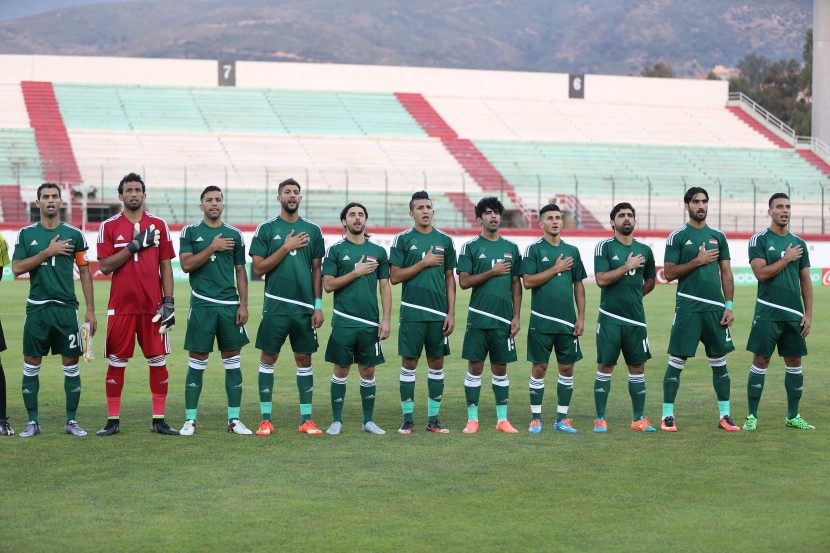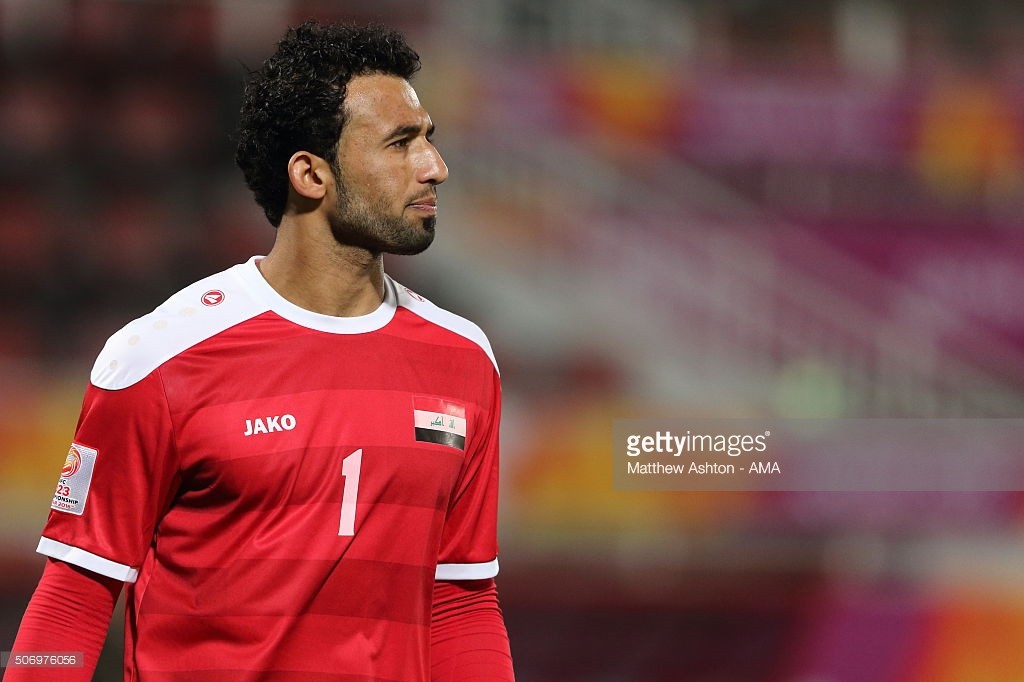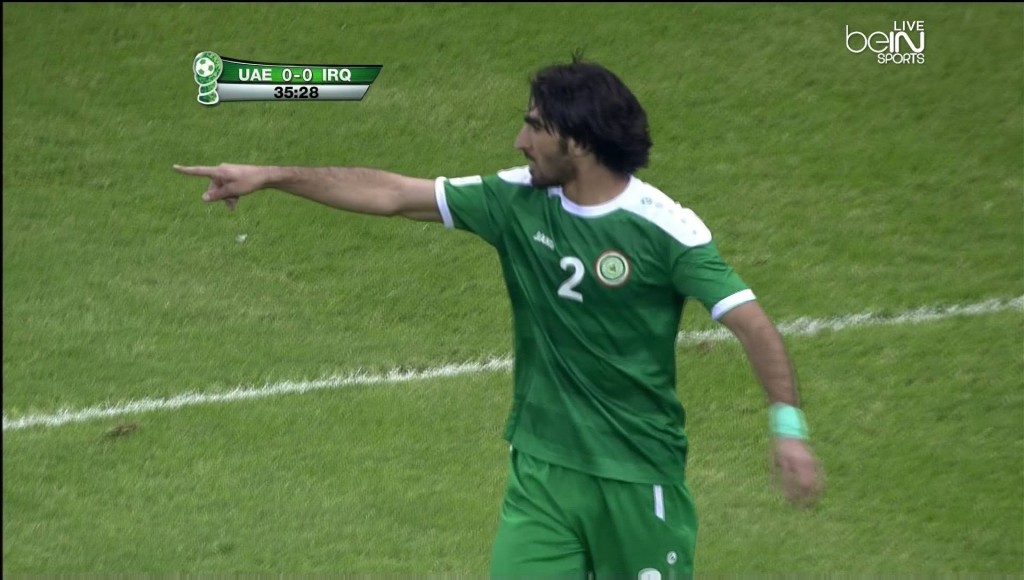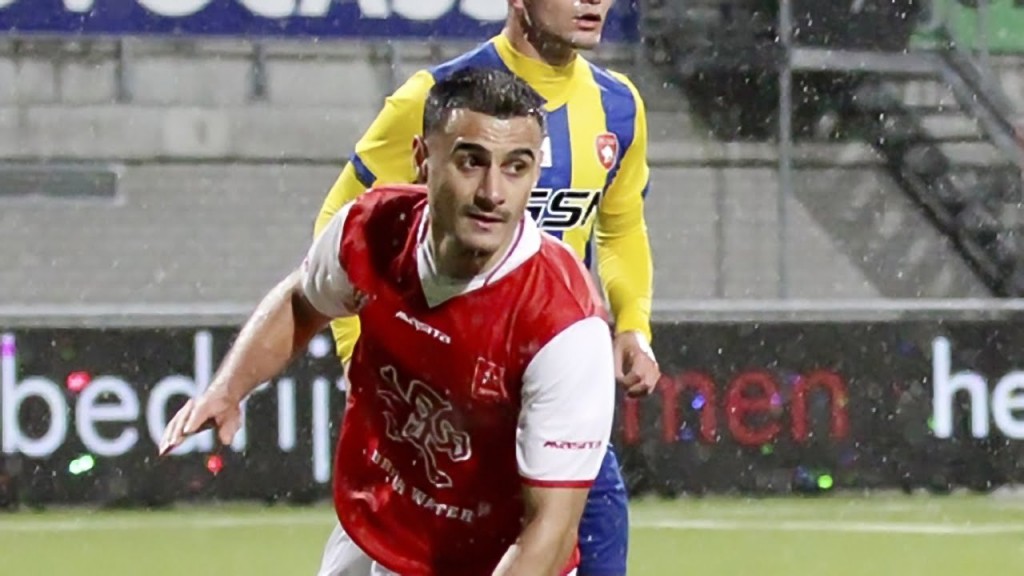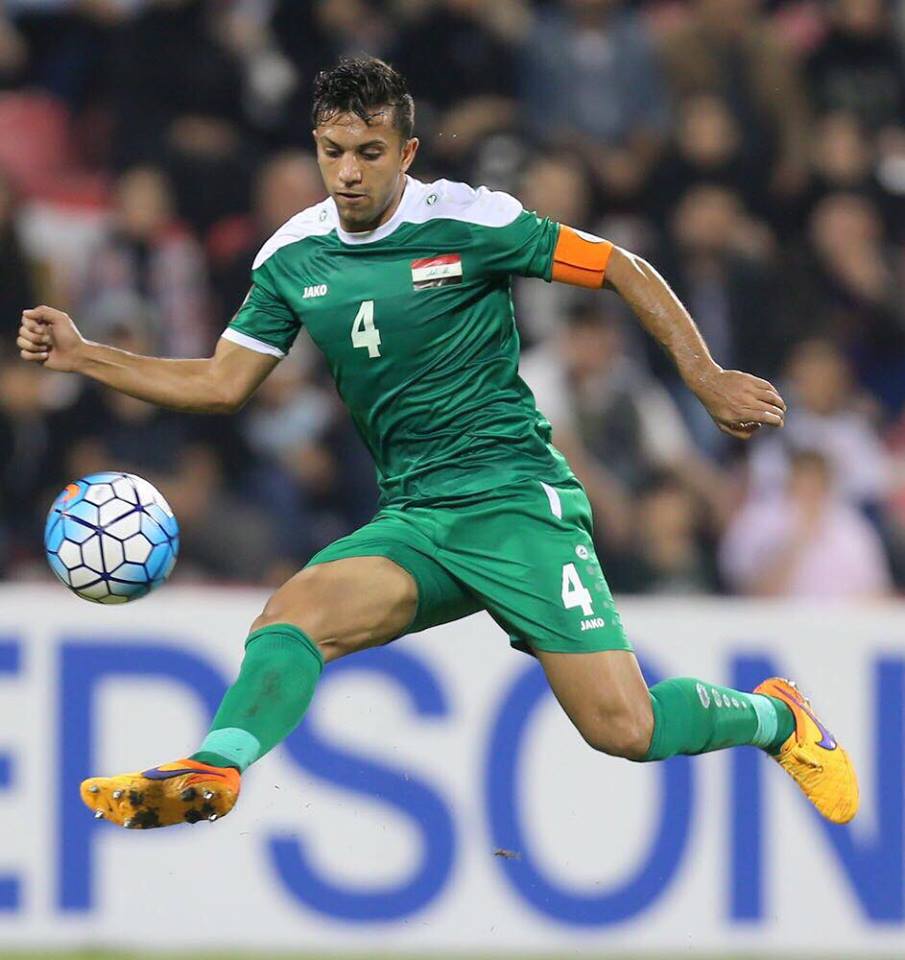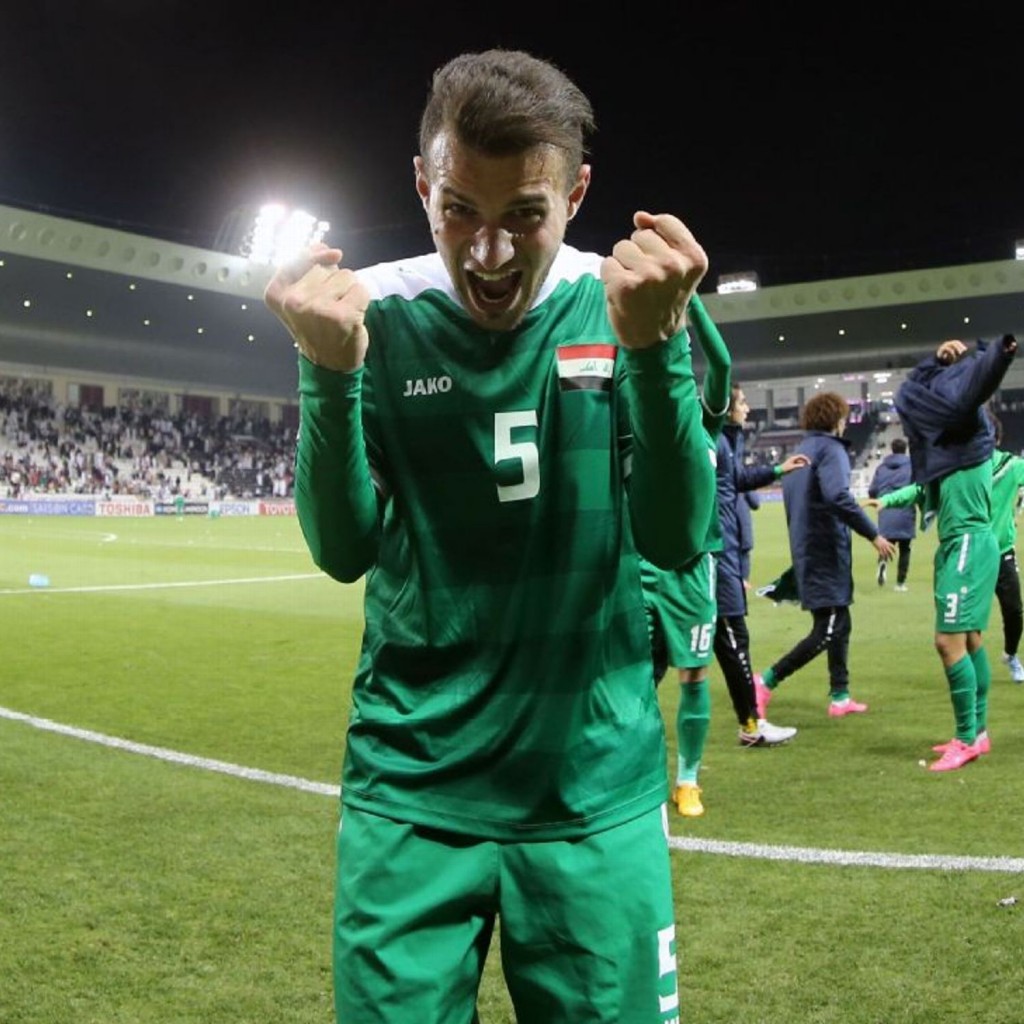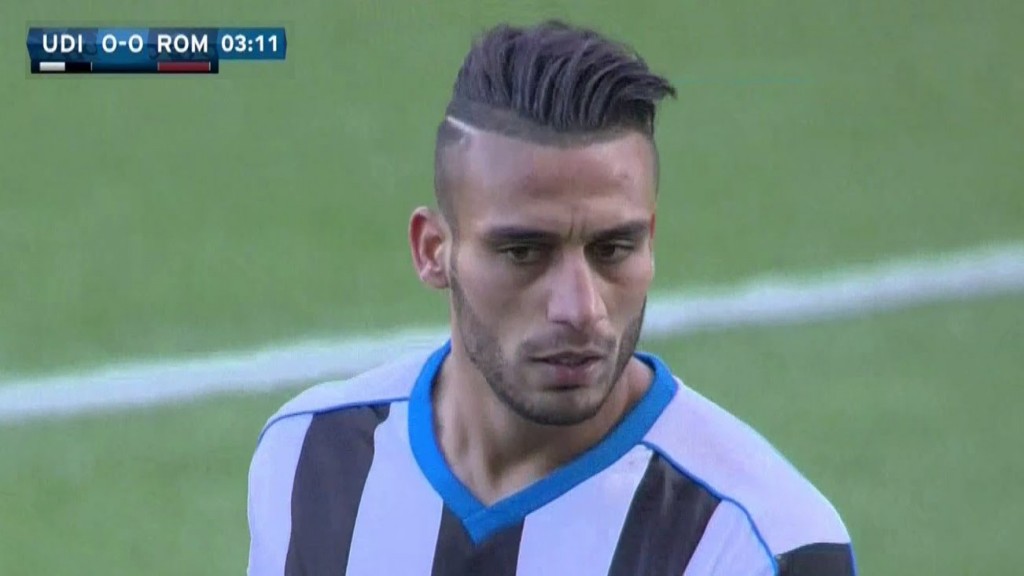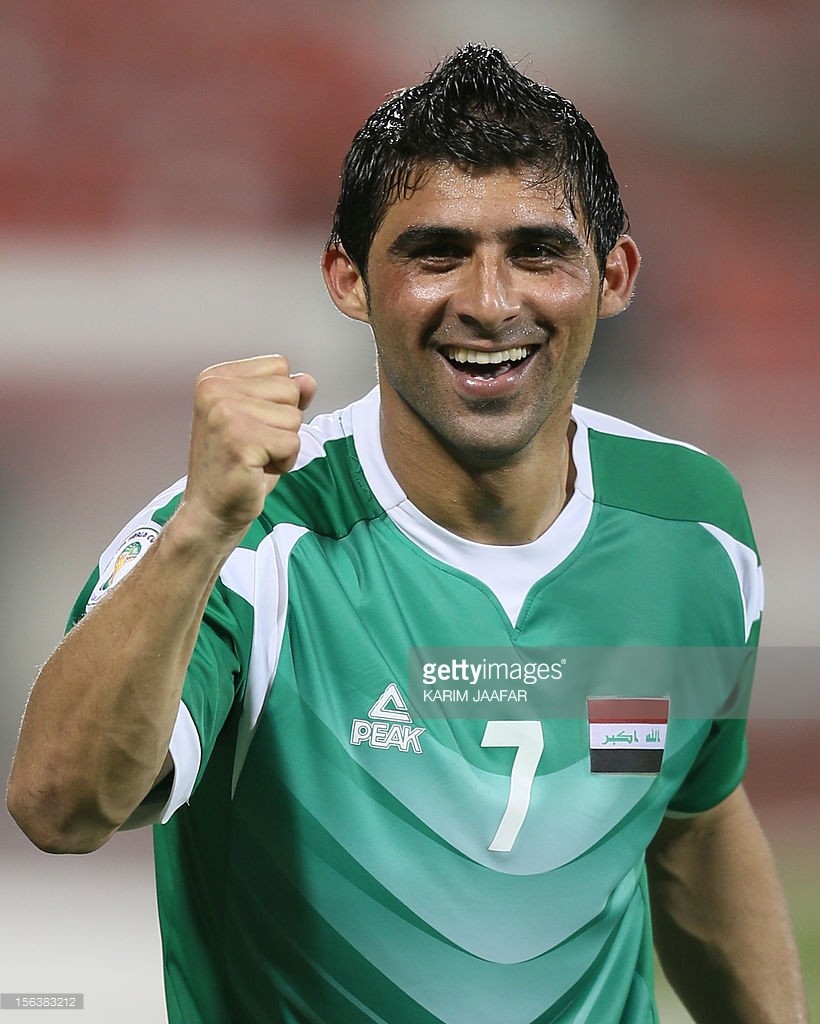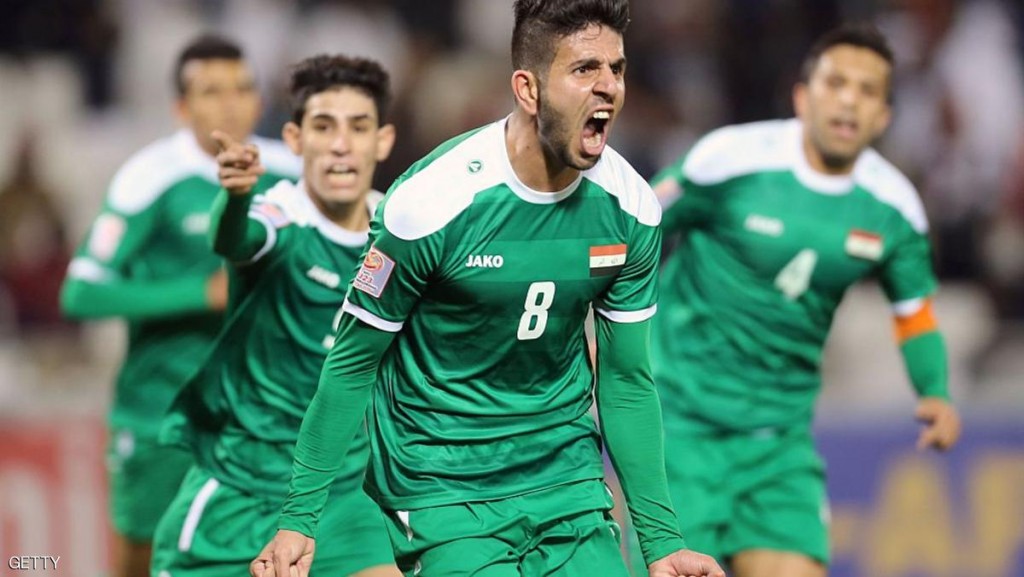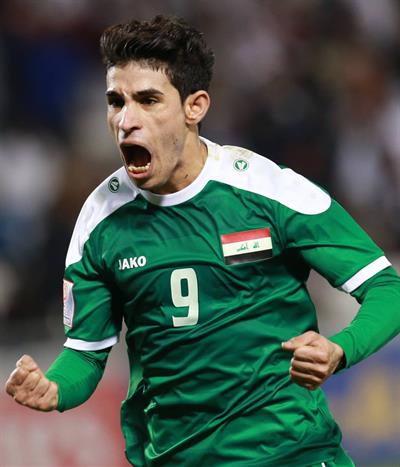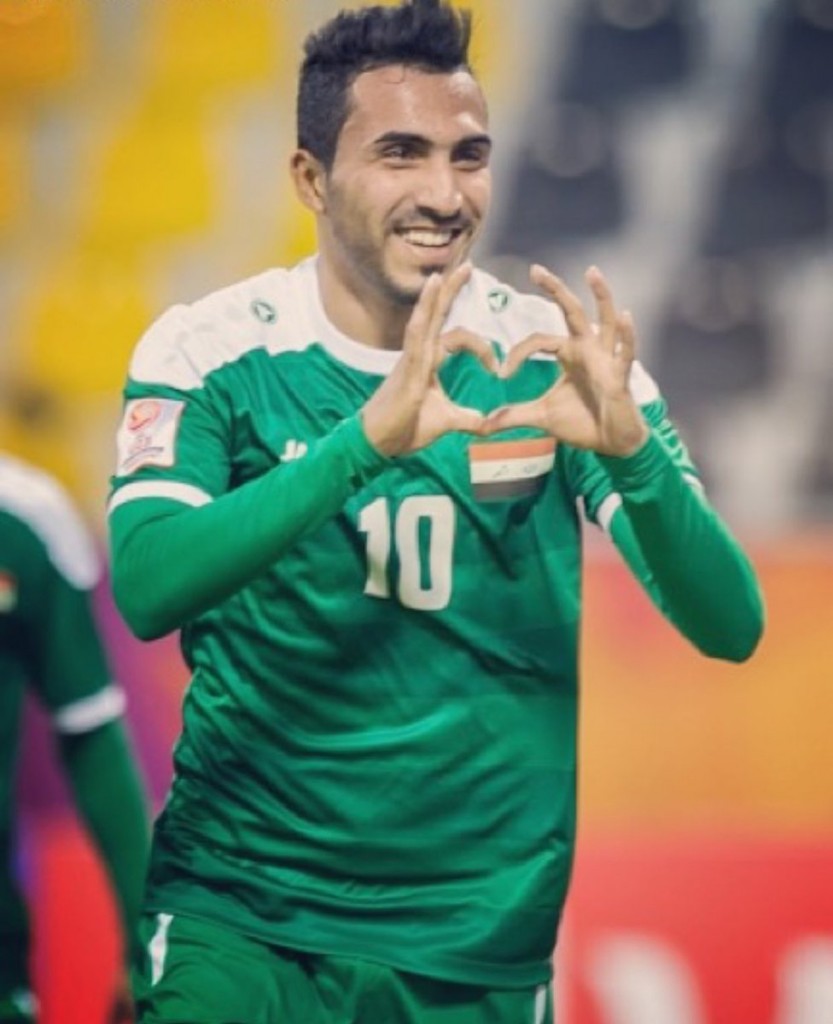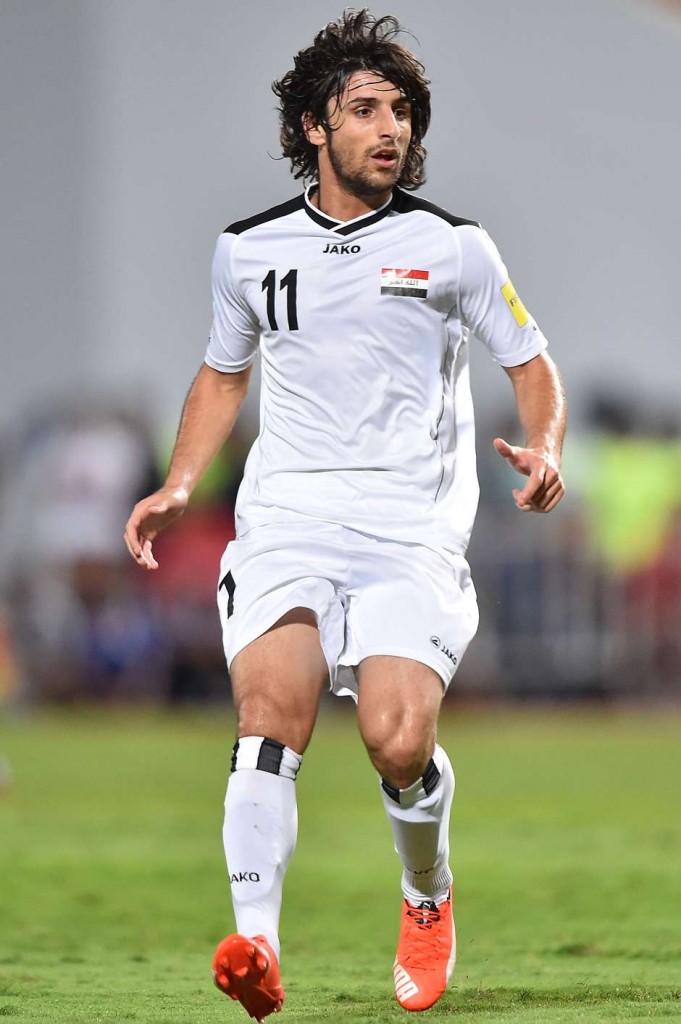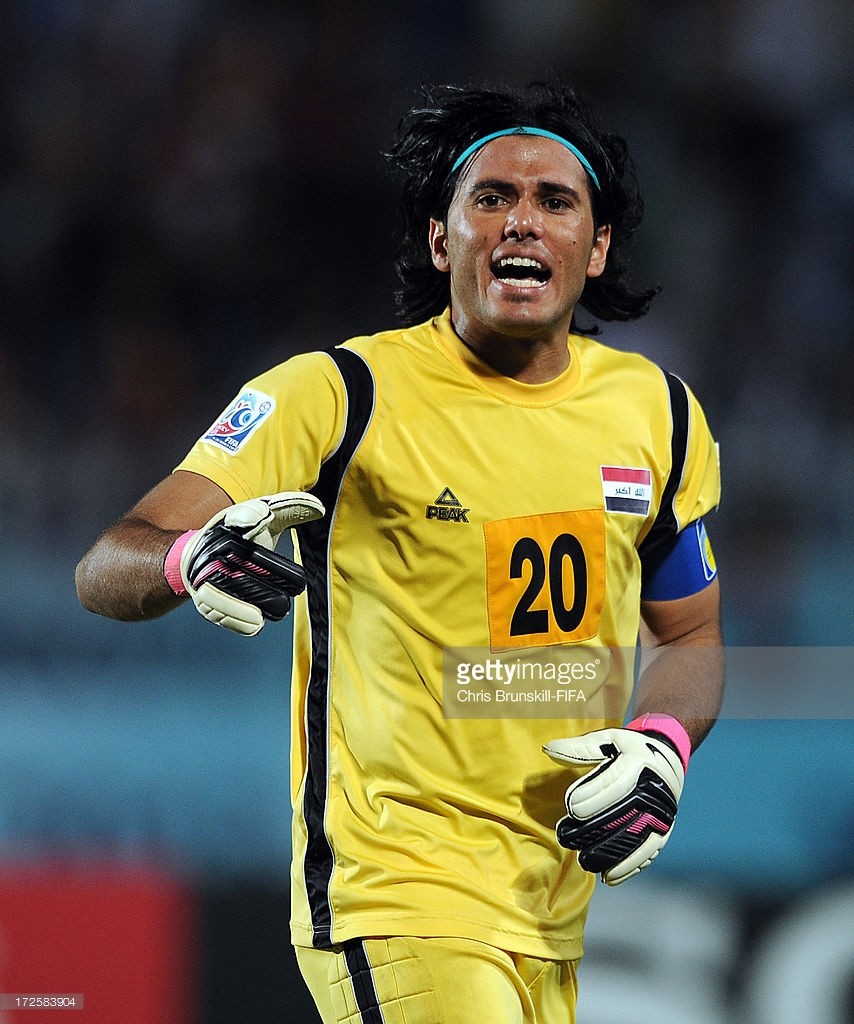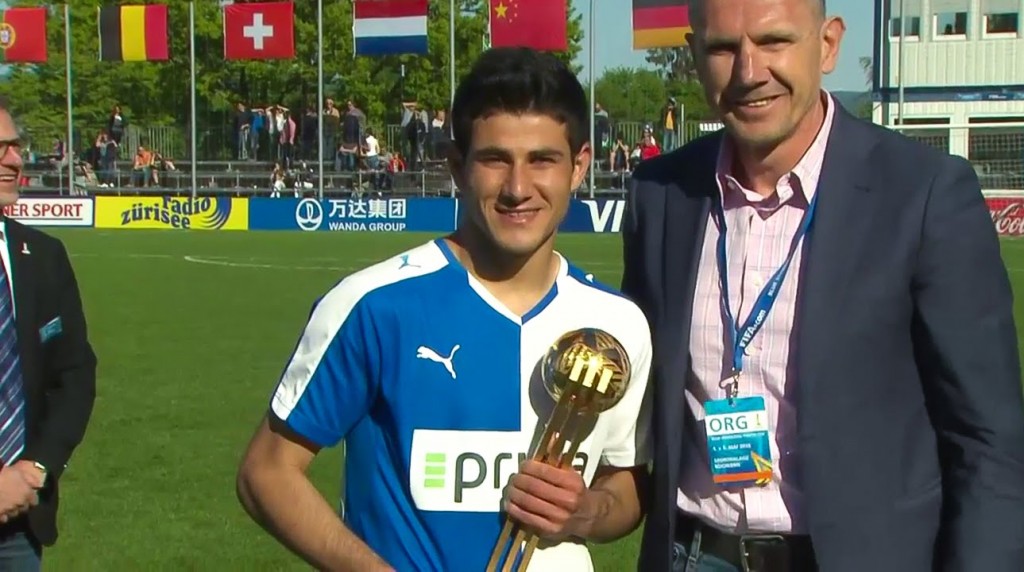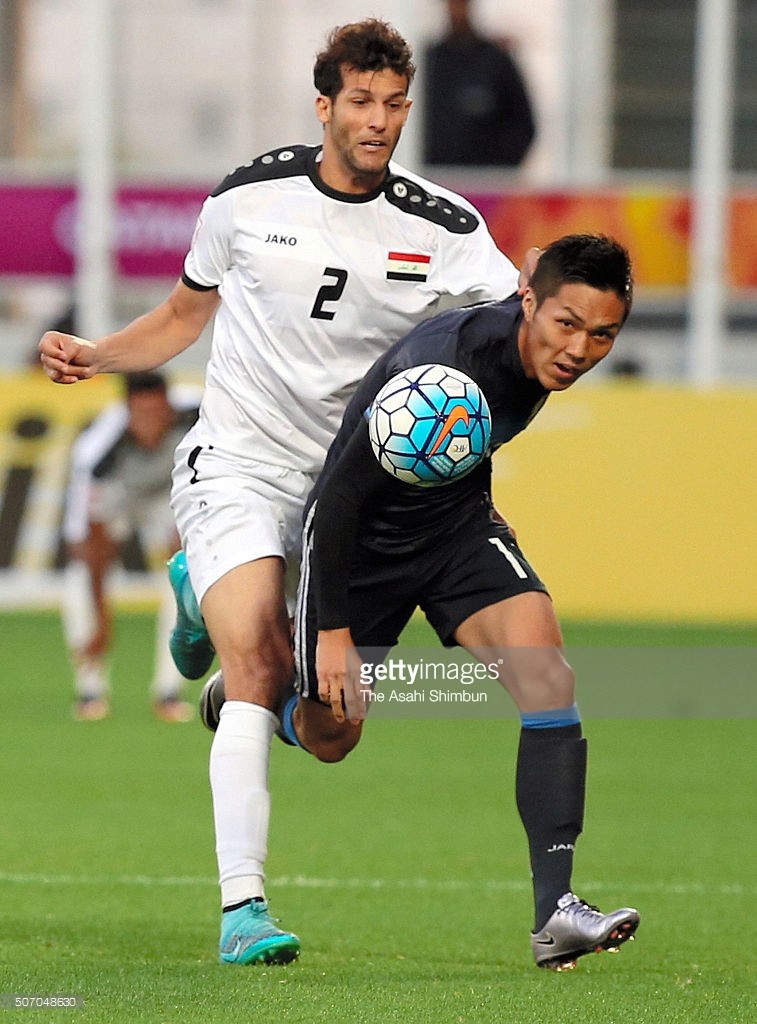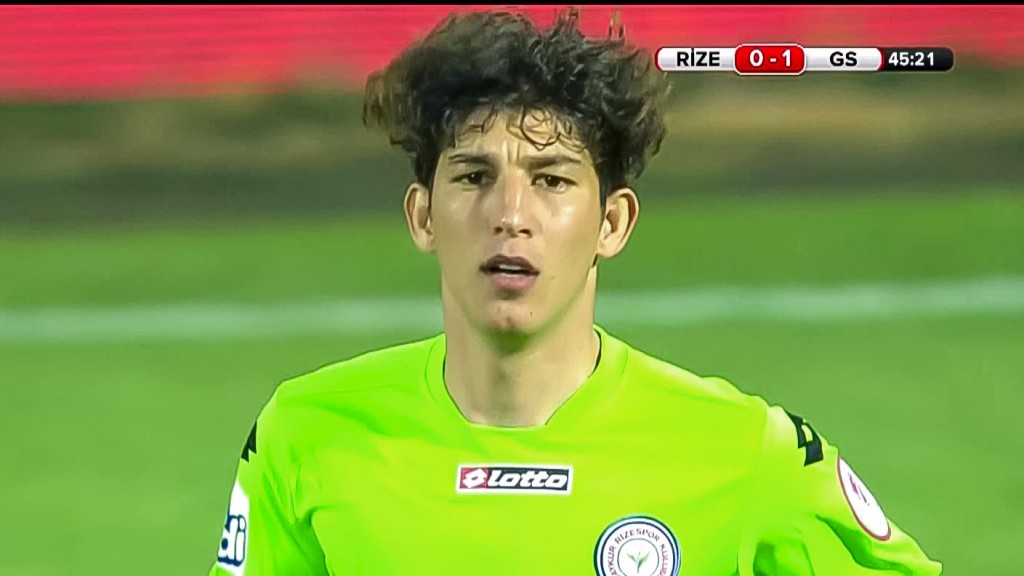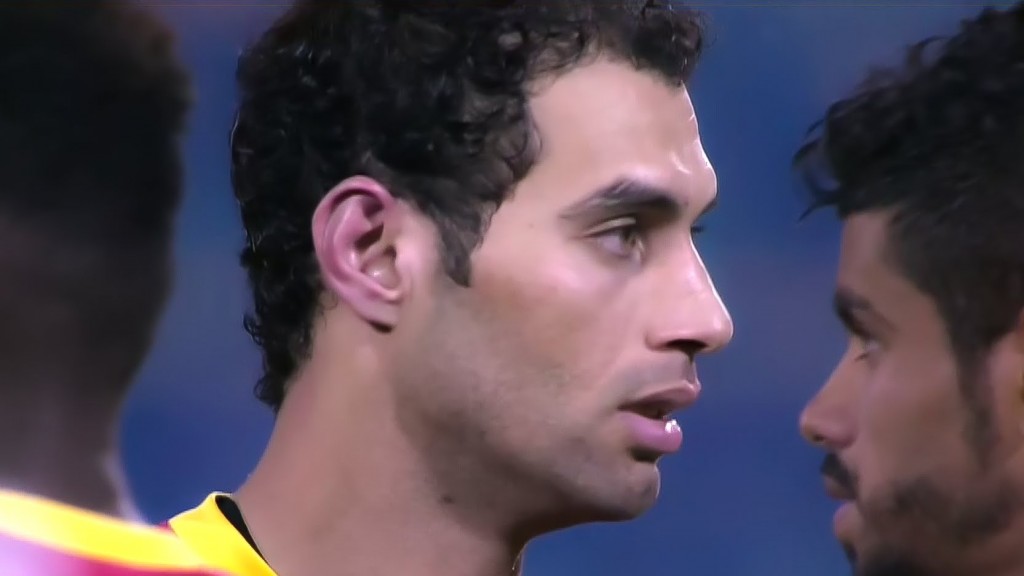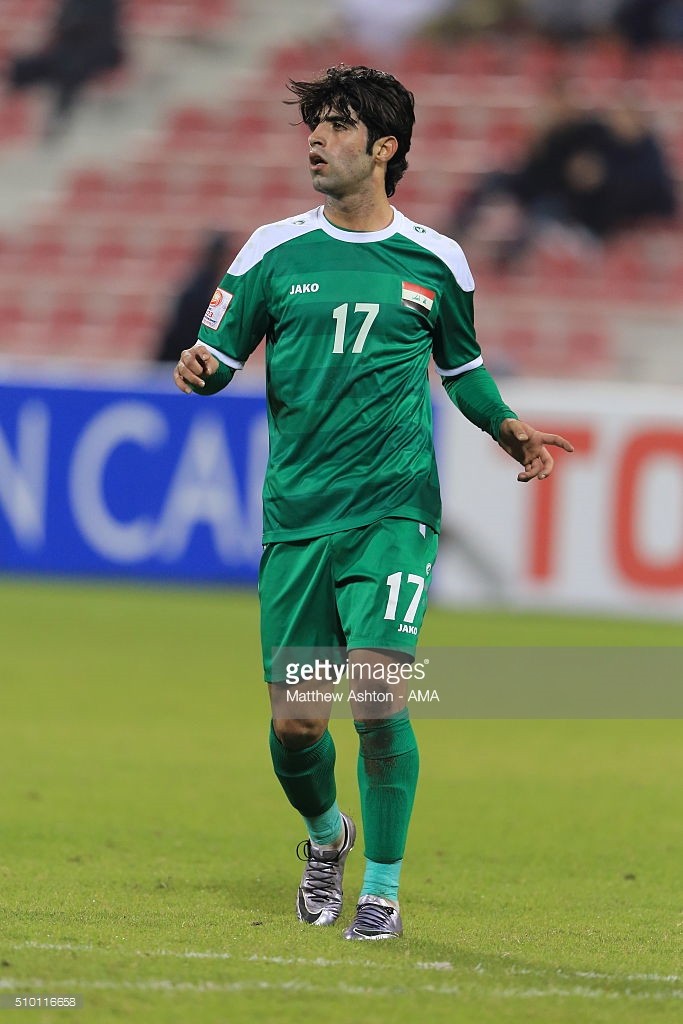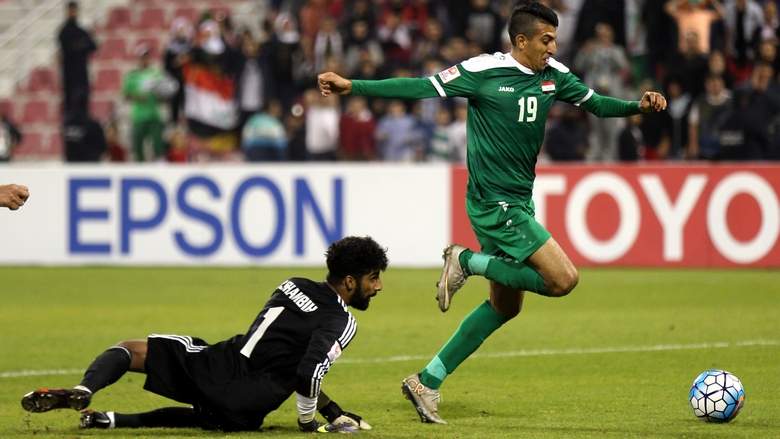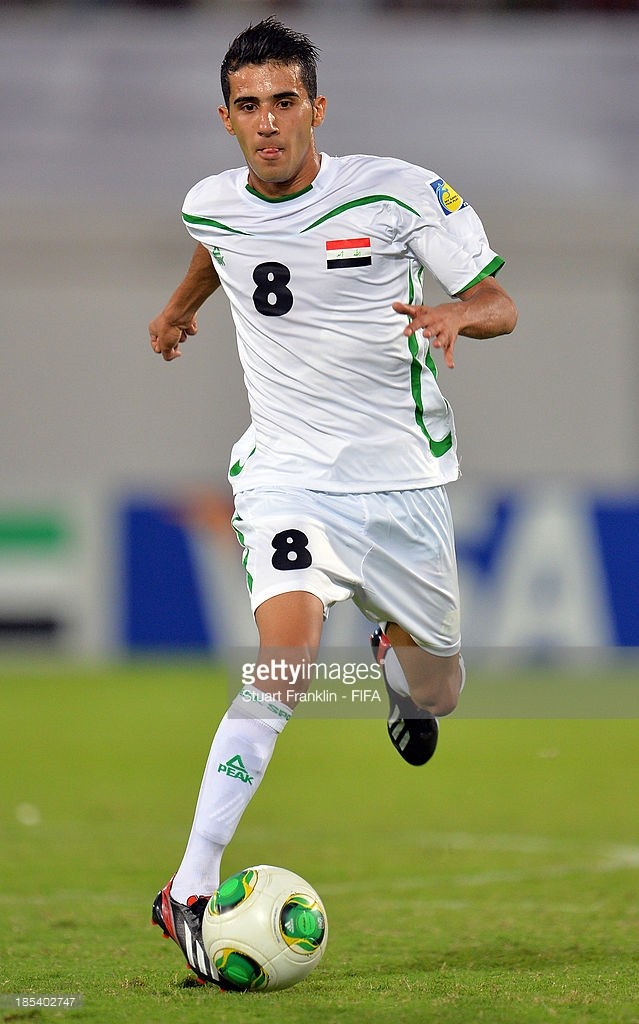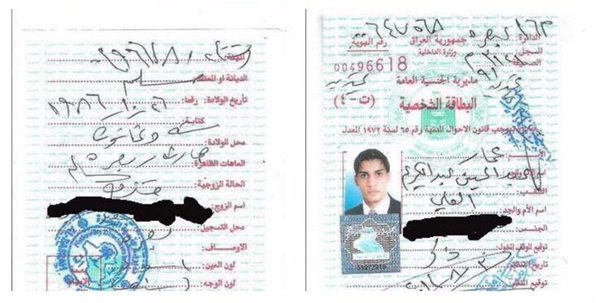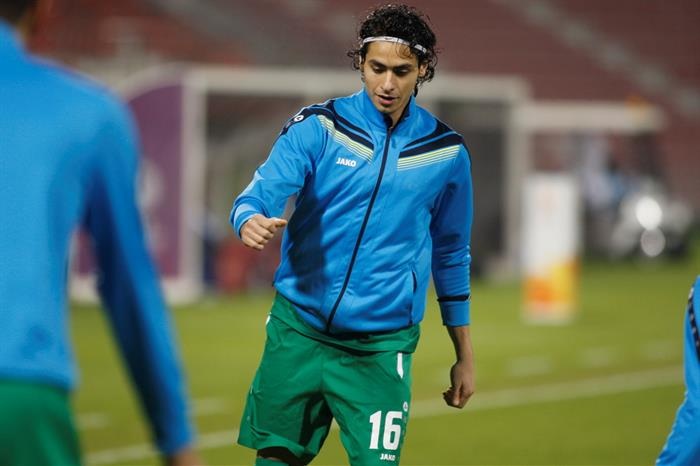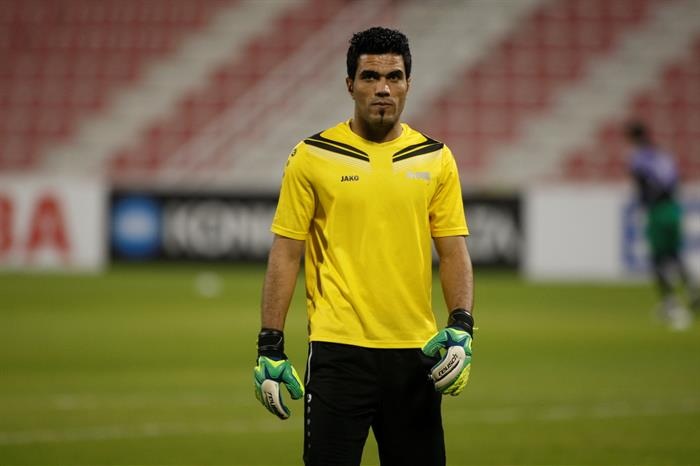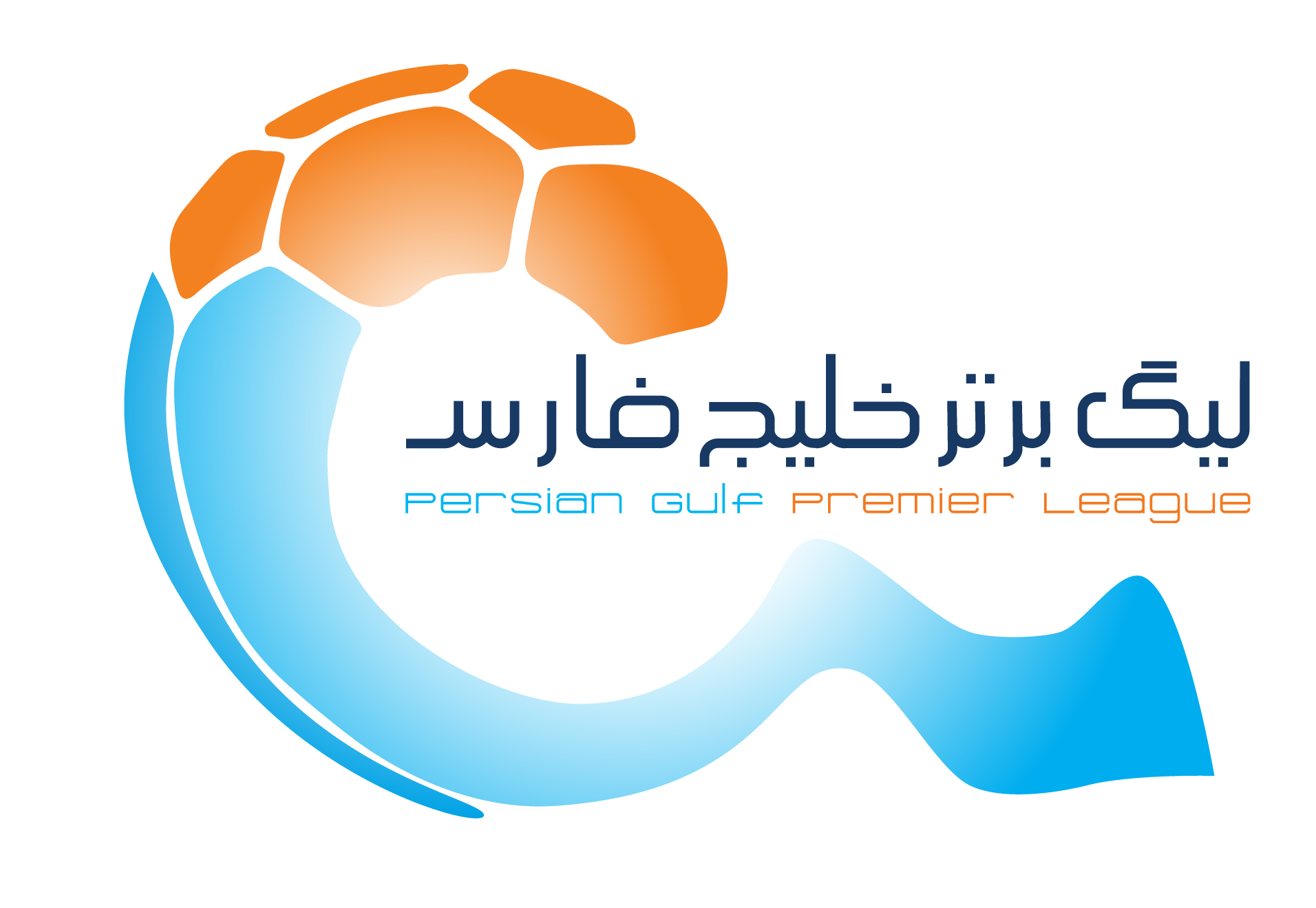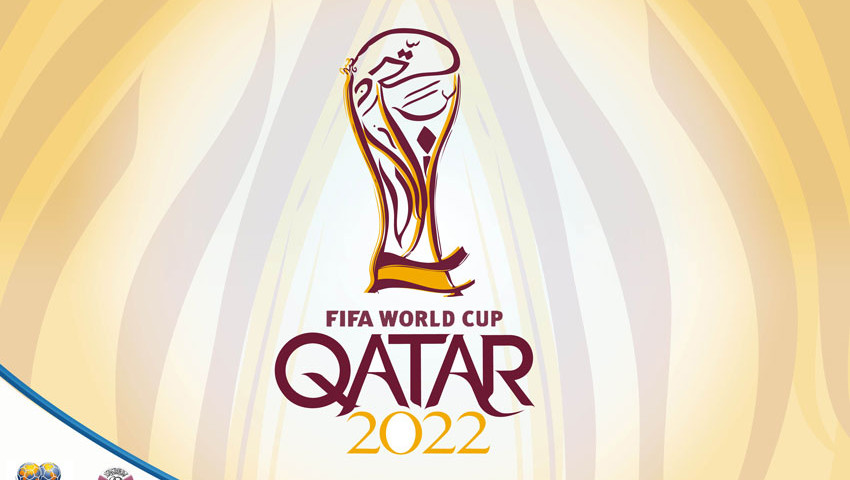-
 The Ryan Babel (Flop of the Season) Award
8 months ago
The Ryan Babel (Flop of the Season) Award
8 months ago -
 Ahdaaf Alternative Awards – The Titus Bramble Award
8 months ago
Ahdaaf Alternative Awards – The Titus Bramble Award
8 months ago -
 Ahdaaf 2018 Predictions
2 years ago
Ahdaaf 2018 Predictions
2 years ago -
 From Tahrir square to Amman: Katanec’s siege mentality
3 months ago
From Tahrir square to Amman: Katanec’s siege mentality
3 months ago -
 Iraq and Katanec on the World Cup trail
5 months ago
Iraq and Katanec on the World Cup trail
5 months ago -
 Demanding league titles without understanding the history behind them
7 months ago
Demanding league titles without understanding the history behind them
7 months ago
IRAQ OLYMPIC TEAM PROFILE
Heroics of the Iraqi football team at the 2004 Olympic Games have been fondly remembered and reminisced over time, the golden generation of Younis Mahmoud, Nashat Akram and Emad Mohammed fell just short of the podium, finishing fourth in Athens. What insiders would not tell you, is that the U-23 Olympics side featured only three players who were actually under 23; the remaining 15 were all over 23 years of age (three of them legitimately in as the squad’s permitted overage players). Saad Attiya, Salih Sadir and Nashat Akram had also altered their real ages to play youth football, but were still under 23 at the time
Not to anyway blemish or lessen the achievements of this remarkable post-war Iraq team, understanding the above does, however, put into context how Adnan Hamad’s ‘Under 23’ team was able to compete with some of the world’s finest U-23 teams featuring would-be stars like Cristiano Ronaldo and Andrea Pirlo while Iraq’s players were in their mid to late twenties! Hamad had achieved the same results with the exact same formula four years earlier at the 2000 AFC Asian Youth Championship in Tehran where only two of his 20-man squad were in reality within that age group while the rest had their dates of birth manipulated.
Iraq’s herculean efforts in Greece were lauded, rightly so, even by neo-cons in the White House with then President George W.Bush declaring – to the detest of the Iraqi players and staff – that he would attend the final if Iraq reached it. Ironically this was all made possible by a culture of age-fraud in Iraqi youth football overseen in the era of the ousted Iraqi president Saddam Hussein and his Baathist regime. Players are not the sole culprits of this corruption but the dishonest environment so prevalent in the Iraqi game is also largely to blame. Shahad’s men will look to emulate the heroics of the 2004 side and this Iraqi Olympic team will be the future of the Lions of Mesopotamia for the next few years. But is their formula to success a bit different this time? Here we preview the 18 players vying to bring Iraq a medal from the faraway land of football.
1 – Fahad Talib (1994, age 21) – The man who displaced Nour Sabri as Air Force FC’s No.1 keeper has been Abdul-Ghani Shahad’s preferred first choice with the Olympic team from the first day he took charge; Talib started all but one of Iraq’s ten Olympic qualifying campaign matches, cementing his status as the team’s first choice goalkeeper in Rio ahead of the more experienced Mohammed Hamed. However, Talib’s form with his club in the final Elite Stage of the Iraqi league was shaky to say the least. The 21 years old has never played for any shaabiya team, but went straight into the Al Quwa Al-Jawiya’s youth system in his early teens and broke into the first team aged just 16 in 2011-12. Fahad followed in his father Talib Rahim and elder brother Ali’s footsteps when he joined the Blue Falcons. Growing up he would sit on the sidelines listening attentively to his father’s advice to Ali. Fahad was supervised by the goalkeeping coach Hashim Khamis, the ex-Iraq and Al-Jawiya goalkeeper, maintaining that the man the Al-Jawiya supporters know as Al-Tayara (“The Airplane”) had been instrumental in his development, with the Jawiya faithful granting the old nickname of his mentor to their new keeper. At the start of 2014-2015 season Fahad was regarded as the club’s third choice keeper behind Nour Sabri and Mohanad Qasim but the club’s coach at the time, Nadhim Shaker, gave him his chance and he made the no.1 spot his. A good showing at the Olympics could see Fahad Talib handed his international debut by Radhi Shanaishel in the near future and with opponents as strong as Brazil and Denmark, Talib is sure to be tested more than a few times in Rio.
2 Ahmed Ibrahim – (1992, age 24) – Iraq’s vice captain is so highly rated by his manager that he is set to beone of Iraq’s main players in Brazil despite not being contracted to any club since January. Ibrahim was released by UAE’s Al-Dhafra in the January transfer window and as a result has only played 637 minutes in eight matches in the whole of 2016 so far. Shahad has slowly eased Ahmed into the team after over six months away from competitive football and the recent retirements of aging national team defenders Salam Shaker and Ali Rahema means the man from the Mosul province is now considered the bedrock of Iraq’s national defence for the next few years and is one of the first names on the Iraq team-sheet. Ahmed Ibrahim Khalaf Al-Khafaji was born in Al-Qayyarah in Nineveh Province, some 75km south of the city of Mosul. An area recently liberated by Iraqi forces from Da’ish (ISIS) fighters was where Ahmed starred for his local team Al-Qayyarah SC playing in defence and sometimes in midfield and was paid a handsome fee to turn out for the side. With no top division club in his home province, Ahmed moved to Al-Sharqat where he started his top flight career before he was signed by Salah-Al-Deen and then Arbil, a move which opened the door for his international debut in 2010. Only two years after playing local football in Al-Qayyarah, Ahmed was lining up as a starter for the Iraqi national team against India in Sharjah and went onto be named in the 2011 Asian Cup squad. With 53 international appearances under his belt, Ahmed, one of the three overage inclusions, is a senior member of the squad and a future Iraq captain in the making. The Iraqi coach has experimented with playing the commanding defender on the left of a three man defence whereas he usually plays at the heart of the defence. This formation could be used by Shahad against strong hosts Brazil and free-scoring Denmark in Iraq’s two opening Group A games. Ibrahim has already come up against Neymar in a friendly game against Brazil in 2011 in Malmö.
3 Hawbir Moustafa (1993, age 22) – Defender Hawbir Moustafa who plays for MVV Maastricht in the Eerste Divisie, the second tier of Dutch football, is the only expatriate player in the Olympic squad after the exclusion of Swindon Town’s Yaser Kasim and forward Ali Akla of Dutch third division side IJsselmeervogels. The right back spot has been a problematic position for coach Abdul-Ghani Shahad since he took over last year, trying-out Safaa Jabar of Zakho and Al-Zawraa’s Alaa Mahawi in the qualifying stages and even looking at the possibility of starting Al-Shurta’s Walid Salim , the senior team’s first choice right back at the Rio Olympics, but after MVV Maastricht signalled the green-light for Hawbir’s participation in Brazil, Shahad has looked to the versatile full back, who can also play on the left or in midfield if needed. In late 2014 Hawbir received a surprise call-up from the Iraq FA and despite possessing no valid Iraqi passport, he made his debut against Yemen in an international friendly in Manama. Born Sulimaniya, his first name Hawbir means “always in the mind” in Kurdish. With Iraq under UN sanctions and the region in turmoil, Hawbir’s father left for the Netherlands in 1997 and three years later, six-year-old Hawbir & his mother followed. They lived in refugee centers in Leiden, Eindhoven and Venlo before settling in the city of Maastricht, where Hawbir’s brother Hawsang “everything is equal” was born. To keep the young Hawbir preoccupied, he would have the ball at his feet on the street and football helped him make friends. A coach at the local football club RKVCL noticed his abilities near the club’s complex and as the player recalls, the coach “literally forced” him to train. Not long after MVV signed him and at just 17, the club’s head coach René Trost gave the fast and agile full back his debut. At the time the player’s papers were not in order however he was given a reprieve by staying on as a player on an amateur basis and has made nearly 100 appearances for “Us MVV’ke” in the Jupiler League since making his debut in 2011 and has been a club regular for the past two seasons. Hawbir is most likely to play a back-up role at the Olympics, with Shahad preferring the attack-minded Alaa Mahawi on the right side of defence but the young Kurd is certainly one for the future.
4 Mustafa Nadhim (1989, age 26?) – The former Iraqi Olympic captain is the team’s most experienced player at Under 23 level, a starter in the Iraqi League for the past eight seasons in the colours of Diwaniya, Al-Najaf, Al-Quwa Al-Jawiya, Arbil and now Naft Al-Wasat. Mustafa Nadhim was one of Hakim Shaker’s youth players and after sitting on the bench throughout the 23rd Gulf Cup in Saudi Arabia, he was given his international debut by his mentor in a friendly against Malaysia. The defender played at right back that day and scored an acrobatic overhead kick, he has since added 2 international goals in his 14 caps. Nadhim’s date of birth recorded in his passport, September 23, 1993 shows the defender is 22 years old. However, this is highly unlikely to be true. Several sources note he was born in 1991 and others in 1989. The defender played University football, supposedly aged 16 when in Iraq most people would begin university at 18. In that same year, 2010, Mustafa helped guide his University to the Southern Universities Championship title for the first time with a comfortable 2-0 victory over Kufa University with one of the goals scored by another Olympic player Safa Jabar. Age aside Mustafa is an important member of Shahad’s team and in the run-up to the tournament the defender was out for more than a month at the start of the year and only returned to full fitness in late May but with Shahad having worked with him at Al-Najaf and knowing his standing in the team, he has patiently waited for Mustafa to return to full-fitness and he will be expected to marshal the heart of the defence in Rio.
5 Ali Faiz (1994, age 21) – A ball-playing central defender who has long been tipped to be the natural successor to Ali Rahema in the national team. The player demonstrated his versatility in a torrid stint at Al-Shurta last season in a holding midfield role in front of a central defence duo. Shahad deployed him in the same position during the Olympic team’s training camp in Europe this summer, but the defender is also capable of playing at right back. A former graduate from the Ammo Baba Football School, Ali has played at every age group level for the Iraqi national team from U-14s to the senior team and at the age of just 21, has already represented Iraq at the Asian Cup, the WAFF Championship and the Gulf Cup. He was handed his international debut by Serbian Vladimir Petrović in 2013 at the age of 18 years, 11 months and 5 days, becoming one of the youngest players to represent Iraq. However he was given a baptism of fire in his first game when he came up against Chilean stars Alexis Sánchez and Arturo Vidal – a game which ended in a 6-0 defeat at the Brøndby Stadion in Copenhagen. Ali has played just eight times for the national side since making his debut three years ago but with the rebuilding of the national team under Radhi Shanaishel the defender could be one of the first names on Iraq’s team sheet in a next couple of years. Ali is on the verge of a new chapter in his career after signing a five-year contract with Turkish Super League side Çaykur Rizespor this summer to play alongside Dhargham Ismail and Ali Husni and a lot is expected from the dead-ball specialist who idolised Xabi Alonso growing up. A regular during the qualification campaign, the defender will be a luxury reserve at the Olympics, with the older defensemen preferred by Shahad in his new-look backline.
6 Ali Adnan (1991, age 24) – The footballing juggernaut of a left back who almost gave up on football altogether after he failed to make the cut in his teens with the Iraqi Under 17s. Now one of Iraq’s top footballing exports and plying his trade at Udinese in Italy’s Serie A, Ali has stepped up a level, taking on more responsibility as a senior member of the national team, showing his leadership qualities. His recent displays in Tehran during the 2018 World Cup qualifiers where he played a part in all goals in the 2-2 draw with Thailand and the 1-0 victory over Vietnam which clinched Iraq’s place, were evidence of this new-found die-hard spirit. Since his break-through performances at the World Youth Cup in Turkey three years ago, there have been comparisons made to Real Madrid galáctico Gareth Bale, however he has some way to go before he reaches those heights and is variably a different type of player to the Welsh wonder. However, Ali is not the same kind of footballer, he is a modern overlapping left back, rather than a left winger as Iraq’s ex-coach Yahya Alwan had previously deployed him. His crossing is best from dead-ball situations than when he is in full-flow on the ball. His performances in his first season in Italy’s Serie A have been encouraging although he has been unable cement his place in the first team at the Stadio Friuli despite making 28 appearances in the 2015-2016 season. With a new man in charge at Udinese in Giuseppe Iachini, Ali Adnan has even more to prove and there is added speculation over his future in Italy. The defender follows in the footsteps of his namesake uncle, Al-Zawraa’s legendary forward Ali Kadhim, who represented Iraq in the 1980 Olympics which was to be his last appearances for the Iraqi national team. For young Ali, the Olympics should be just another stepping stone.
7 Hamadi Ahmed (1983, 32) – A lot has passed since Hamadi Ahmed was first handed his international debut by Brazilian Zico four years ago. The Ishaqi-born forward has waited patiently for his opportunity as Iraq’s first choice striker and after the retirement of legendary captain and forward Younis Mahmoud this year, the Olympics in Brazil could be the place where Hamadi kick starts his Iraq career after years of continuous stop-starts. His shock inclusion came after Yaser Kasim and Abdul-Qadir Tariq were dropped for disciplinary and passport issues. Abdul-Qadir “Aboudi” Tariq’s absence arose after he was detained by security authorities at Najaf International Airport over issues relating to his passport as he was about to make his way with the Iraqi delegation for their two warm-up friendlies against Algeria in Blida. With both Yaser and Abdul-Qadir absent, it left one spot open for an overage player and a striker, to be vacated by Hamadi Ahmed, scoring just 17 minutes after coming on as a second half substitute against Algeria. Hamadi Ahmed Abdullah Al-Taie was born in the town of Ishaqi in the Balad district in Salah-Al-Deen province on October 18, 1989 however there were suggestions made by Olympic coach Nadhim Shaker that the player was born in 1983. The story goes that the player had applied for a visa to Amman to play for Iraq at the West Asian Championship after he was selected by German Wolfgang Sidka, however for unknown reason, the player failed to get a visa and sat out the tournament. Months later he was called-up for the Olympic team by Nadhim Shaker, Sidka’s assistant but with the knowledge that the player had previously applied for a visa with a passport noting the year of birth as 1983, making him ineligible to play at Under 23 level, the coach Nadhim Shaker decided to omit the player so the Iraq FA would not suffer any sanctions from the AFC or FIFA. Confirming the suspicions that he was born in 1983 the player had represented Tikrit University at the Arab University Championship in Cairo in 2006. The player started his career with two local clubs in the lower divisions, first at hometown side Al-Ishaqi and then Al-Balad. In 2004, he moved to first division club Salah-Al-Deen where he spent only a season before making his name at Samarra becoming the club’s main striker and match-winner and is fondly remembered by their fans. His move to Baghdad giants Al-Quwa Al-Jawiya came about after he was one of the provincial players called into the national team after the appointment of German Wolfgang Sidka in 2010 and roomed with Al-Jawiya’s Ahmed Ayad – who was the go-between with the player and the Al-Jawiya club officials and after he was given his release papers by Samarra, he signed for the famous club. The Al-Jawiya forward has been on hot-form with 12 goals in the Iraqi League last season and another 12 goals in the AFC Cup as his side topped Group C. The nippy forward also helped Al-Jawiya to the World Military Cup as the club represented Iraq in the 2013 CISM World Military Cup where Hamadi was the tournament’s top scorer with nine goals in Baku. Hamadi is a poacher in the six-yard box and has been one of the most prolific goal scorers in the Iraqi league scoring 74 goals in his six seasons with the Blue Falcons in the league including 27 goals in a single season in his second season at the club where he was league top scorer for the first time in his career. Last season, Hamadi was joint top scorer with fellow Olympic striker Mohanad Abdul-Rahim with 12 goals and his years of experience will be crucial for Iraq at the Rio Olympics, if they want to advance to the knock-out stages.
8 Mohanad Abdul-Rahim (1989, age 26) – The 2012 AFC Young Player of the Year arrives in Brazil on the back of his best season to date, with 12 goals for the White Seagulls, the current Iraqi league champions Al-Zawraa. Olympic coach Abdul-Ghani Shahad has hedged his bets on the Baghdad-born striker scoring the goals that will propel Iraq into the last 16 at the Olympics. However Mohanad has a secret that the Iraqi media and the FA will not want you to know. The player’s real name is Mohanad Abdul-Rahman Kazar the name he was registered with at Al-Karkh in the 2010-2011 season and was actually born in 1989 making him 26 years and not 22. His passport expires in 2018 and with players finding it difficult to renew their passports with a forged date of birth, this secret could become public in the next couple of years. The Iraqi coach denies any knowledge of age fraud in his team, citing that each member of his squad is eligible to play at youth level as they possessed valid AFC IDs, however he must have known the striker’s real name as Mohanad once scored against Abdul-Ghani Shahad’s Al-Najaf team just before he changed his name! From a young age, the childhood Al-Zawraa supporter and son of a tribal Sheikh would spend his free time on the concrete pitches in his local neighbourhood kicking a ball with friends. It was his late uncle Razzaq who encouraged him to take up the game and coached him with his first shaabiya team with Najoum Al-Mualameen and Iskan Al-Shaabi, the two main football teams in his local area between Iskan and Mualameen where both sides wanted the talented youngster in their team. Mohanad had trials with Khutout under Ismail Saleem however he was overlooked and instead started in the Al-Karkh youth system and had a season at Al-Shabab in the second division after he returned from living in Syria to escape the instability of the Iraqi capital – after losing his uncle and brother Mohammed to the violence in Baghdad. His life changed when his late coach Nasrat Nassir at Baghdad’s Al-Karkh Sports Club switched him from playing as a wide forward to play upfront centre forward position while he was breaking into the Al-Karkh first team and in early 2011 by virtue of a new passport and altered date of birth, he was called into the Iraq U-19s team becoming the main striker in Hakim Shaker’s ‘young’ team, scoring a goal in the AFC Youth Championship final and going onto be awarded the 2012 AFC Young Player of the Year award. Mohanad spent the 2014-14 season abroad in Algeria for JSK Kabylie where he played 12 matches and netted four goals in the Algerian Ligue Professionnelle 1. However his stint in North Africa began in tragic circumstances with the death of Cameroonian team-mate Albert Ebossé who was killed on Mohanad’s debut against USM Alger with the African player fatally struck on the head by a projectile thrown by one of the angry JSK fans while the players were leaving the field. Injuries blighted his time in Algeria, made worse by the synthetic astroturf pitches in the Algerian league and despite scoring two goals against MC El Eulma and receiving an offer French side Angers SCO after he was contacted by an agent about a move to Ligue 2. But even after receiving several contract offers from Algerian and Egyptian clubs he decided to leave JSK. The player, with a young daughter and wife, wanted stability in his life and regular first team football and decided to sign for the club he supported growing up, Al-Zawraa. While in Algeria, Mohanad had an offer to play for Al-Quwa Al-Jawiya for one stage of the Iraqi league however the club administration wanted to sign him but did not want play him as a starter as they were looking to him for the future, so he decided to join Al-Zawraa to play for free, however he was unable to move because of an administrative error. The striker is at the peak of his powers and will be Shahad’s main attacking threat at the Olympics. The coach has shown huge loyalty to Mohanad and the forward has returned the confidence the coach has shown in him with goals, injured prior to the qualifying campaign, Mohanad played in every one of Iraq’s six matches in Doha scoring two goals including the opener in the third/fourth play-off game and came off the bench in Iraq’s recent World Cup qualifier to score or thigh-in the winner against Vietnam which clinched Iraq’s place in the next round of the 2018 World Cup qualifiers. Turning 27 this year, Mohanad is one of players arriving at the peak of his career and in the next couple of years, could see him become Iraq’s first choice striker.
Mohanad Abdul-Rahman scores for Al-Karkh against Zakho in the 2010-2011 Iraqi League season
9 Mahdi Kamil (1993, age 23)– The playmaker is one of Iraq’s most improved players, a key man for the Olympic team, increasingly making his presence felt with the senior team, with a crucial goal – his first for the national team – coming in Iraq’s disappointing 2-2 draw with Thailand in Tehran earlier in March this year. Mahdi is one of the U-23’s key players and has been used a variety of positions in midfield and out on the flanks. The Baghdad-born midfielder comes from a sporting background with his elder brother having been played at Al-Jaish while his three cousins Mohanad, Adnan and Ahmed Nassir were also footballers, Mohanad going onto play for Iraq’s youth team and once played against Brazil. In 2007, Ahmed Nassir then of Al-Sinaa was hurt in a twin suicide bombing that took the lives of 80 Iraqis at the Al-Shourjah market in the city of Baghdad and his playing career was ended after his leg amputated from the hip down. His cousin Mohanad Nassir played against Brazil at the 2001 FIFA World Youth Championship in Argentina, and the No.9 hopes to emulate his relative by lining up against the Brazilians at the Olympics. In his youth, Mahdi was destined to make it as a footballer, kicking a ball around his local shaabiya field for his local team Anwar Baghdad in Qataa (sector) 5 in Sadr City, people would often tell him that he should try out for a club. The youngster who brushed away their calls but after one local game that changed when a team-mate of his decided to take it upon himself to take him to Al-Quwa Al-Jawiya for try-outs. His team-mate took him to the Air Force Club and Mahdi was picked after trials and won a title with the Al-Quwa Al-Jawiya Ishbal (“Cubs”) under Bashar Latif and Sami Shabib and progressed to the Under 17s under the supervision of Mohammed Nassir. His life forever changed when in a friendly between Al-Jawiya U17s and Iraq’s U17s, Mahdi Kamil in the blue shirt stood-out and impressed the U-17s coach Muwafaq Hussein earning him a call-up to the team. The diminutive street-urchin played in the qualifying rounds for the Under 17s and after the competition with interest from Baghdad rivals Al-Shurta, and with limited playing time at Al-Jawiya, Mahdi decided it was time to move on and signed for Al-Shurta after he impressed officials Mohammed Khalaf and one of the club’s coach Adnan Jafar. However despite signing his first senior contract he never got a game and was placed in the youth team until coach Basim Qasim was appointed and Mahdi eventually made his full league debut. The player has matured from when he first started out, forced to sit impatiently on the bench early on in his career, Mahdi often thought of quitting football, however his own mother advised him to be patient and it was the making of the midfielder, understanding that the coach needed him at specific moments in matches, to a change a game. In his fifth season at the Police Club, Mahdi is considered one of Al-Shurta’s senior players and captained the club in the Iraqi league last season in the absence of injured club captain Amjad Kelaf. Standing at 1.64 m (5 ft 4 1⁄2 inches), Mahdi always had his doubters even when he was called to the Under 17s, however the player the Qithara faithful call Zola after the tiny ex-Italy and Chelsea playmaker Gianfranco Zola, has showed in the past couple of years that he’s more than capable of imposing himself on opponents in the Iraqi league despite his slight frame and lack of height. That belief in his own abilities, may come from his long-admiration for Catalan giants Barcelona and their brand of tiki-taka football, a style more reliant on passing and skill than on strength. A self-confessed Barça fan and an admirer of Andrés Iniesta who the Iraqi player calls a painter with the ball seemingly stuck to his feet and insists the Barcelona maestro does not merely kick a ball but cresses it, much like an artist’s brush on a flat canvas and sees him on a completely different wavelength as a footballer even to Lionel Messi. Perfecting his own ball skills, Mahdi would spend hours observing Barcelona’s No.8 and admitted he studied and learned how to pirouette on the ball from the Spanish genius. A versatile player, Mahdi has been used in several positions with the Olympic team and the national side, at right and left wing, in central midfield and as a withdrawn forward and is certain to be one of first names on Shahad’s team-sheet in Brazil.
10 Ali Husni (1994, age 22) – Newly married and about to embark on a European adventure with Çaykur Rizespor with fellow Olympic colleagues Dhargham Ismail and Ali Faiz, the Karbala-born wide-man will be a key figure for the Iraqi Olympic side at the Rio Games. Seven months ago, the talisman shouldered much of the team’s attacking burden during the Olympic qualifying campaign and was Iraqi team’s standout player and main inspiration throughout their qualifiers. The lively winger had long been touted as the future star of Iraq’s midfield but was continuingly ignored by former national coach Hakim Shaker, in what seemed to have been a personal grudge against the midfielder for his public outburst after he was dropped from the 2013 FIFA Youth Cup squad. He would eventually make his debut in the last minutes of a friendly game against North Korea that same year but was overlooked by the same coach for the Asian Games in Busan and the Gulf Cup in Saudi Arabia. Not until Hakim was sacked after the calamitous results in Riyadh and the appointment of Radhi Shanaishel did Ali Husni get a fair crack at the whip and after appearances against Kuwait and Uzbekistan, the Iraqi coach selected him in the final squad at the 2015 Asian Cup Down Under but had no playing time. Under Yahya Alwan, who gave him his first Olympic call-up, Ali was a regular starter in the national team and scored his first international goal in a 5-1 win over Chinese Taipei and is a significant member of the new generation of the Iraqi national team, post-2007. Ali Husni Faisal was born in 1994, in the province of Karbala however started his football progressing through the youth ranks of the grand old Basra Port Club under the supervision of Mohammed Abdul-Hussein and broke into the first team during the 2012-2013 season becoming one of the club’s pivotal players. Ali’s loss through injury at the Elite Stage of the Iraqi League was felt hard by Al-Safana after he had been outstanding in the opening Group stage of the Iraqi league season where they had finished a point behind leaders Al-Quwa Al-Jawiya, however without Ali, the team’s main playmaker and the club’s top scorer Syrian Omar Khrbin – who left for Al-Dhafra in the UAE, Al-Minaa could only finish sixth in the Elite Stage. Today, Ali is on the cusp of something big, with his new coach at Rizespor already dazzled by his abilities after just a couple of days in training and adding that he could be one of the best players in the Turkish league this coming season.
11 Humam Tariq (1993, age 23) – The heir to Baghdad’s renowned Faraj & Sons Confectionary Company was one of Iraq’s prime performers at the Olympic qualifying tournament in Doha. Humam played his heart out throughout Iraq’s qualification campaign to Rio despite suffering the loss of his father prior to the start of the tournament. In spite of losing his place in the national team last year carelessly giving away the penalty that rallied Thailand’s come-back in Bangkok after coming on as a second half substitute, the twinkle-toed Humam is an integral part of the Olympic set-up and is one of the first names on Shahad’s team-sheet. His position out on the left has become his own natural domain. Hard-working and technically gifted, Humam has a lot to offer his team and with the confidence shown in him by his coach, he could have the kind of tournament that got him noticed three years ago at the FIFA World Youth Cup in Turkey. A lot had been expected of the No.11 since then, but the midfielder has faltered to deceive and has been unable to find the right team at club level after he was discarded by UAE Arabian Gulf League club Al-Ahly. In the summer of 2014 after putting pen to a two-year deal with the Dubai club – Humam was sent out on loan to minnows Al-Dhafra – where his displays failed to impress Al-Ahly’s Romanian coach Cosmin Olăroiu, who believed he was not worth a place in his squad for the 2015-2016 season. Turned down for a second season by Cosmin, he decided to return home to Baghdad and the Blue Falcons, buckling down last season, winning the Iraqi Cup, his first piece of silverware with his childhood club. At the turn of the year there were rumours of an offer of a trial from Serie A side Udinese presumably a wasta from Olympic team-mate and close friend Ali Adnan and the player insisted he would travel to Italy for a trial after the World Cup qualifiers in March, however those statements proved to be short-lived as Humam, instead of flying to Italy, finished the season at Al-Jawiya, winning the Iraqi Cup title with a win over league champions in the final. During the U-23’s preparations in the run-up to the Rio Olympics, Humam was given leave to negotiate a transfer to Turkish Süper Lig club Bursaspor however the move fell through at the last minute after the club refused for him to play at the Olympics as it was important for him to represent his country. The experienced 23-year-old with 33 international appearances at senior level–will be in the shop window at the Rio Games and more importantly will have something to prove.
12 Mohammed Hamed (1989, age 27) – Mohammed Hamed knows exactly how it feels to fall from grace, one minute he’s the country’s number one keeper and the next he’s spending seven months without a club. The ex-Iraqi youth captain who only three years ago was regarded as one of Iraq’s best keepers is slowly rebuilding his career after goalkeeping mistakes against Saudi Arabia during the 2015 Asian Cup qualifying campaign and a calamitous error in a AFC Cup tie in the West Bank saw him dropped by the Iraqi FA and released by Al-Shurta! The goalkeeper from the city of Ramadi will be one of ten players from the memorable Iraq youth side which reached the semi-finals of the FIFA World Youth Cup in Turkey three years ago. Mohammed Hamed was the Iraqi youth keeper and one of the star performers in Turkey, a custodian from the Albu Soudah area in the western province of Al-Anbar. He first started on the dusty grounds of the Thilth or third playground in his home town playing for the shaabiya team Al-Karama under the coach and school headmaster Mohammed Khalaf Salim before he made his name with Iraqi league club Al-Ramadi and then moving onto the city of Baghdad to play for Al-Kahraba in 2009 when he was supposedly only 16 years of age. His inclusion in the final 18-man squad by Abdul-Ghani Shahad has been received with both astonishment and surprise by the Iraqi sports press after long allegations of age fraud and for the reason that he has not played any club football since leaving Zakho more than seven months ago! Mohammed Hamed was one of 18 players signed by Zakho at the start of last season, with his contracted ratified by the Iraqi FA on August 24, 2015 however after just two months and 26 days later, he left the Duhok-based club by mutual consent after wanting to move to Al-Talaba in the winter transfer window. However because of contractual issues, the keeper was unable to sign for the Students and spent the rest of the season without a club! Shahad’s predecessor Yahya Alwan had vowed not to select any players with any suspicions of age fraud and dropped Mohanad Abdul-Rahim, Saif Salman and Mohammed Hamed! However when Shahad took charge in, repeating the Iraq FA’s statements noting that the players possessed AFC IDs which in their words proved the trio were not over-aged, the trainer recalled Mohanad and Saif and after qualifying for the Olympics finals in Rio, the Iraqi coach deemed Mohammed Hamed worthy of a place in the 18-man squad. There have been persistent rumours behind the scenes that the Iraqi coach had only selected players for the final Olympic squad based on agreeing to sign for Naft Al-Wasat where Shahad will manage next season, with Mohammed Hamed one of those players.
13 Sherko Karim (1996, 20) – One of Iraq’s coveted young footballers, Sherko Karim’s international career has been blocked by his own European aspirations, where he is now plying his trade with Swiss side Grasshopper Zürich. The boy from Kirkuk will be one to watch at the Olympics. Sherko Karim Latif Gubari was born on June 25, 1996 in the northern city of Kirkuk and made his first steps on the fields of local Al-Thawra Sports Club in his home city. He was discovered by Iraqi U-17 coach Muwafaq Hussein on one of his scouting trips scouring for new talent around the country, and after watching him, he quickly called him up to play for his side, and shortly after, moved to Baghdad to play for Al-Shurta. It was after the U-17s qualified for the 2012 AFC Under 17 Championship that Iraqi clubs began clamouring for his signature, with Arbil one of the favourites to sign the striker but instead he moved south to the Iraqi capital to start his career in the top division, and after an initial offer from Al-Karkh, he moved to Al-Shurta. On December 30, 2011 at only 15, he signed a three year contract with Iraqi Premier League club Al-Shurta then managed by coach Basim Qasim, and made his senior debut for the Police club a year later, before going onto help the Iraqi U-17 to qualify for the FIFA Under 17 World Cup for the first time. The delay in Sherko Karim making his full international bow centres around the striker’s clash with the FA and his U-19 coach while he was with the Iraq youth side in Myanmar when Sherko had been selected to play at the 2014 AFC Youth Championship. In the second half of the group game against Qatar when his coach Rahim Hamed turned to bring the young forward on, but was told by his two assistants that Sherko had left the bench and was sitting in the stands! The player insisted he had informed the two coaching assistants that he was not in the right state of mind to play and later claimed he was physically assaulted by the coach after the game for what was perceived as his obdurate stance. Sherko’s thoughts had been elsewhere as he had been waiting in the city of Arbil for a visa to fly to France for trials with several clubs when he was called up by the Iraq FA. Before the youth tournament the player had been told he would be suspended and his ITC clearance would not be released wrecking any move to Europe if he refused a call-up from the Iraq U-19s side. Sherko swiftly made himself available and arrived a day before they departed. At the end of 2014, Sherko finally received his visa and flew to Paris and had trials at French clubs Montpellier, Valenciennes, Marseille and AS Monaco, where it was reported that he was close to signing a deal, though an Iraqi journalist claimed Monaco pulled out of a three-year deal after finding out that the player was over the age of 17 after undertaking tests, alleging that he was born in 1991! Sherko eventually signed a two and a half-year contract with Swiss club Grasshopper Zürich and went straight into their youth side. This summer Sherko scored a goal in the final of the 79th edition of the Blue Stars/FIFA Youth Cup in Zurich in a 2-0 victory of English club West Ham and was awarded the Adidas Golden Ball as the competition’s best player. On the eve of the final Olympic qualifying round in Doha in January this year, Sherko left the team after his club refused to allow him to take part but this time around, Abdul-Ghani Shahad made sure he would have the striker in his squad in Rio after he travelled with Olympic representatives to Zürich to speak to Sherko’s club about allowing him to play at the Olympics. SK7 could be a revelation in Rio and one to look out for.
14 Saad Natiq (1990, age 26) – A battled hardened central defender who put his life on the line in the dying moments of Olympic qualifying play-off against Qatar, diving in front of a goal-bound effort to save Iraq in Doha. That selfless act willing to put his body on the line for the nation earned him the nickname Al-Fedaye or the commando for the fearless way he cleared the ball with his body. The Iraqi Olympic coach has been experimenting with three men at the back and it means Saad will be a vital part of the squad, after first appearing that he would be dropped from the starting line-up with the inclusion of overage centre back Ahmed Ibrahim. A Najaf native, Saad navigated his way through the Al-Najaf youth system and made his senior debut with his home club under Hatif Shamran in 2009 and was part of the club’s first team for two seasons. However it was in the Iraqi capital that Saad made his name, when he joined Doura-based oil refinery club Al-Masafi in the south of Baghdad where he played for three seasons – earning his selection to the Iraqi U-19s. It was under Hakim Shaker that Saad Natiq or Suad Natiq – the English spelling in his passport (Suad is a female name) became one of the nation’s recognised defenders after years in the wilderness. Saad Natiq was born in 1990 according to the identification card issued by the Ministry of Youth this year however his passport states March 19, 1994 – allowing him to play for the Iraqi Under 19s at the FIFA World U-20 Cup in Turkey. It was his spell at Al-Masafi under the command of trainers Hassan Ahmed and Nadhim Shaker that he developed as a player and was transformed into a strong tackling centre half after used in several positions at the club including at right back having first started out as a midfield anchor in his early days at Al-Najaf. In the summer of 2014, the defender was signed by his former Al-Masafi club coach Nadhim Shaker to play for Al-Quwa Al-Jawiya after his club were relegated to the first division. On signing the central defender the head coach of Al-Jawiya, Nadhim Shaker stated that the decision to sign him came as part of the club management’s desire to strengthen the team’s defence, and Saad went straight into the team. Last summer the defender looked to be on the move again, but decided to renew his contract with the Blue Falcons however despite winning the Iraqi Cup with a 2-0 win over Al-Zawraa it was a disappointing season with the Air Force Club and has had offers to play abroad, namely Iranian giants Perspolis in the Persian Gulf Pro League.
 Details from Iraq’s Ministry of Youth for Visa cards released to sportsmen – Saad Natiq 19/3/1990
Details from Iraq’s Ministry of Youth for Visa cards released to sportsmen – Saad Natiq 19/3/1990
15 Dhargham Ismail (1991, age 25) – The hard-working and technically gifted left-sided player is the only member of the squad not to have taken part in the Olympic team’s preparations in the run-up to the Rio Games after his Turkish club Çaykur Rizespor refused to release him to link-up with the Iraqi team – citing that the Olympic Games was not on FIFA’s international match day calendar. It was touch and go whether Dhargham would represent Iraq at the Games, however after months of letter writing and joint Iraq FA and Olympic delegations traveling to Rize to negotiate the player’s release for the tournament, it was agreed the left back would be allowed to join from July 29 along with his new Iraqi club-mates Ali Faiz and Ali Husni. The left back joined the Iraq FA youth system more than six years after FA member Yahya Zaghir the secretary of Naft Maysan, where he was a youth player, took the promising footballer to Iraq U-17 coach Muwafaq Hussein and presented him as “a player from Al-Sadr City,” a city within a city in the Iraqi capital, no one knows why the Iraq FA official decided to hide the fact that the talented player was from the province of Maysan, maybe it was because he felt the player would have it easier. Dhargham was a footballer from the province and for decades the Iraqi youth sides had been dominated by Baghdad-based players, both because of the prejudice against the provincial talent and the close proximity from the youth sides training facilities in the Iraqi capital and with only a few coaches scouting around the country for new talent. Yahya Zaghir may have believed it was better for Dhargham to be labelled a player from Baghdad rather than face the prejudice of coming from the provinces. Two years later, the technically gifted left sided defender was the star of the Under 17s side, wearing the No.9 with presenter Haidar Al-Wattar waxing lyrical on MBC channel about the extraordinary talent. Dhargham Ismail was born on May 23, 1994 in the city of Amarah in Maysan province, in south-eastern Iraq. Though Dhargham was considered a wonder kid who had played for the U-17s, U-19s, U-23 and the national side in the space of a year, there were rumours that he was not born in 1994 but was actually three years older than what was stated in his passport and the player’s real date of birth was apparently April 25, 1991 There were two incidents that the player was involved in, that correspond with this fact. On September 13, 2012, he was one of the nine players from the youth team preparing to travel to Amman for a friendly tournament, who were detained at Baghdad International Airport by security officials after it had been discovered that the players were travelling on forged documents. The nine players were Ahmed Hussein, Mustafa Nadhim, Ali Adnan, Ammar Kadhim, Mohammed Ali, Jawad Kadhim, Karrar Salih, Ali Yasin and one Humam Tariq. The Iraq FA held a meeting with the youth coach Hakim Shaker a week later regarding the issue but six of the nine players took part in the Asian Youth Championship in the UAE two months later and the scandal was swept under the carpet. However he went onto play at the 2013 FIFA World Youth Cup in Turkey and the 2014 U-23 Asian Games in Busan. But on his return from the 2015 Asian Cup in Australia, where he was one of Iraq’s best performers, the Interior Ministry detained the player at Baghdad airport, and he was unable to participate in his club’s AFC Cup matches until a combination of parliamentary and ministerial interventions ensured an end to the crisis. Dhargham had been one of five Al-Shurta players that had their passport confiscated by the Ministry of Interior after they were about to expire however their application to renew their passports was rejected by the Ministry of Interior due to evidence of forgery. The five were Dhargham (born 1994 but whose actual DOB was 1991), Ali Bahjat (1992/1987), Mohammed Kasid (1986/1982), Mahdi Karim (1983/1977), Amjad Kelaf (1991/1988) and Hussein Abdul-Wahid (1985/1983) all had their passports confiscated after evidence of tampering with their DOBs in their passports differentiating from the details recorded on the national civil registry, with the age altering attributed to the players participating in age range tournaments and they could not play with their real ages because they had all registered with the AFC with their reconstructed date of births with the knowledge of the Iraqi FA. On March 12, 2015 the player was issued with a new passport from the Immigration and Naturalization Service in the Interior Ministry. The Passports and Nationality Directorate of the Interior Ministry had handed him his passport after a period of revisions made to issue the passport. According to the Baghdad-based sports paper Al-Mondial, a source within the Ministry of Interior had put an end to the crisis after a personal intervention from the Minister of Youth who demanded them issue a new passport the player for the interest of the national side, however the details noted in his new passport were the same forged information that were used so he could play in age range tournaments. The passport was issued on the condition the player reverted back to his real age and documents after the end of his participation in upcoming football tournaments, as had been done under the Iraq FA in pre-2003.
16 Saad Abdul-Amir (1988, age 28) – Iraq’s new captain is coming into the Rio Olympics in the best form of his career after a commanding first season at newly promoted Al-Qadisiya in the Saudi Abdul Latif Jamel league – with his club finishing a respectable 11th in the Saudi league. His accession to the Iraqi captaincy has come after years of hard-work, spending many of them as understudy to the big names in the Lions of Mesopotamia team, waiting calmly and patiently for his opportunity. The 28-year-old came into the international fold six years ago after impressing for the Iraqi School team! In the summer of 2010, weeks after he had won the Arab School Championship in Beirut with the Iraqi School team beating Egypt 2-1 in the final, Saad was included in Sidka’s first squad, and was one of only three players from the initial preliminary squad that was selected for the final 2010 WAFF Championship squad. The retirement of Qusai Munir and career threatening injury to Muthanna Khalid saw Saad become Iraq’s most experienced player in midfield in the run-up to the 2015 AFC Asian Cup, four years after he had sat on the bench at the 2011 tournament in Doha watching Qusai and Nashat Akram organising the midfield. In Australia, Saad formed a strong midfield partnership with Swindon Town’s Yaser Kasim that was one of the reasons for Iraq reaching the semi-finals. Olympic coach Abdul-Ghani Shahad had lost the suspended Saif Salman – ceremonially dispatched after alleging his daughter was seriously ill and needed to return home, immediately after he was told by Shahad that he would be on the bench for the quarterfinal against the UAE during the qualifying tournament! Lacking strength and experience in midfield, Shahad had hoped to bring in the national team partnership of Saad and Yaser Kasim to the Olympic set-up to shore up the centre, however Yaser’s yet unexplained AWOL act means Saad will be in midfield with the youngster Amjad Atwan. Born in 1988, Saad Abdul-Amir Liabi Al-Zirjawi first played shaabiya football in the Shuala Al-Sadreen district in Baghdad, making his way through the youth teams at local club Al-Shuala and then Al-Kadhimiya before joining Al-Karkh in the first division (second tier) gaining promotion with Yellow and Black jerseys to the top flight in 2009. Saad Abdul-Amir is somewhat the quiet leader of the Iraqi team, a soft-spoken person who rarely gives interviews – which the Iraqi media claim is the main reason why the player is not amongst the Iraqi fans’ favourite players. The unsung hero, Saad is generally deployed as a holding midfielder but has the drive and the determination to bring the ball forward or make runs down the flanks. Though derided by Iraqi football fans for what they perceive as his lack of skill and ability, Saad’s experienced will be essential at the Olympics in Rio. A player who plays the game at his own tempo and has a calming influence on the team.
17 Alaa Mahawi (1994, age 22) – The overlapping full back is one of only three players in the squad of 18 yet to play senior international football but has already played at every single age level for Iraq, bar the national team. The former Kahraba player always has his late club-mate and close friend Mahdi Abdul-Zahra close to his thoughts and dedicated Iraq’s qualification to the Olympic Games in Brazil to his friend who was killed in a car bombing in Baghdad in 2015. In tears after the final whistle in the 2-1 play-off victory over Qatar in Doha, Alaa told reporters that he had wished his team-mate and friend was alive to join them in the moments of joy. After the qualifying tournament in Doha, Alaa and Amjad Atwan were called up by national coach Yahya Alwan but with questions over the player’s match fitness, Alaa was dropped on the eve of the team’s departure to Tehran for the final two World Cup qualifiers. Alaa Ali Mahawi is another graduate from the famous Ammo Baba Football School and from there he was selected for the Iraqi Ishbal (“Cubs”) and participated in the Asian Cup at that level, before progressing to the Under 17s – where he was one of five Kahraba players in the first Iraq Under 17s team – including his late friend Mahdi Abdul-Zahra – to play at a World Cup at U-17 level. At 16 years of age and already considered one of the best players in his country in his age group, he signed for Al-Kahraba in the second division after receiving several contract offers for the start of the 2013-2014 season, preferring to join the Electrics Club which at the time included a close group of players in the same age group. After representing Iraq at the FIFA U-17 World Cup in the UAE, his club were inundated with offers for the attacking full back with Arbil making a serious bid for his services, with the player explaining to his club’s management that he wanted to leave to Arbil however the move was quickly rebuffed by his club, insisting he honoured his three-year contract. After two seasons at Al-Kahraba and his club finishing one place off the bottom of their league group, Alaa left the club and was signed by former Al-Zawraa coach Emad Mohammed to play for the White Seagulls– on signing the player, the former Iraqi striker – who was later replaced by Basim Qasim – predicted a big future for the right back, and in his first season at Al-Nawaras, Alaa scored the winner at a packed Al-Shaab stadium in the Baghdad El Clásico against Al-Quwa Al-Jawiya side-footing the ball through the hands and feet of Olympic colleague Fahad Talib and went onto lift the league title.
18 – Amjad Atwan (1997, age 19) – A certain starter for the Olympic team in Brazil, the all-action midfielder is like a son to the Iraqi coach after managing the Kut-born footballer at Naft Al-Wasat. It was Abdul-Ghani Shahad who signed the player whilst coach of the Midland Oil Club spotting him at nearby Karbala and transformed the player into a holding midfielder having been a forward early on in his career and the pair have worked closely from that day on. He has been ever present with the Olympic side since Shahad took over last year and his career has gone from strength to strength after making the move to Naft Al-Wasat in 2014. The former Iraq U-17 international has the ability to play anywhere in midfield, whether in a holding role, on the right or left flanks or as an advanced midfielder. After guiding the U-23 team to finals of Rio Olympics with some imperious performances in Doha particularly in the quarter-finals against the UAE, scoring the winner, Amjad was handed his first senior call-up by Yahya Alwan and made his debut in 1-0 defeat to Syria in a friendly in Tehran this March and subsequently started in the World Cup qualifiers with Thailand and Vietnam. After an erratic season at Al-Shurta working under the management of four coaches Hakim Shaker, Qahtan Chathir, Radhi Shanaishel and caretaker Hashim Ridha, the midfielder has agreed a return to Naft Al-Wasat for the new season where he will link-up with his Olympic coach once more. Amjad Atwan Kadhim Al-Maksousi born in Al-Kut in the province of Al-Wasit, was a product of the Al-Kut youth system who he first joined in his early teens and in due course made the first team in 2012 before transferring to fellow province club Al-Nahrain in the lower divisions after representing Iraq at the FIFA U-17 World Cup in a team which featured Amjad, Sherko Karim and team captain Bashar Resan as the three main attacking players. In 2014 he signed for Karbala and played his first matches in the top flight in the Iraqi league and was spotted by Abdul-Ghani Shahad and signed him for newly promoted Naft Al-Wasat. In the space of six months, Amjad become one of the Iraqi league’s most coveted players and won an Iraqi League winners’ medal in his first full season at the highest level. The midfielder – now a full international – has had offers from clubs in Turkey, Portugal and Oman after an unsatisfactory spell at Al-Shurta, however has decided to return for another season at Naft Al-Wasat – under the management of Abdul-Ghani Shahad. Undoubtedly Amjad has the natural ability to become one of the most talented footballers of his generation, however he has learn to be more disciplined and control his temperament at times but his talent on the pitch shines through.
Reserves/Alternatives
Bashar Resan (1993, age 22) – The second of Al-Jawiya’s gifted wide attacking midfielders. Like Humam Tariq, the fresh-faced Bashar was promoted to the first team at a relatively young age and captained the Iraq U-17s at their first ever appearance in a World Cup in the UAE three years ago. His father Resan Benyan was footballer in the 60s and 70s and appeared for Iraq at the 1973 Palestine Cup in Libya and named his son after his close friend and former Iraqi national team player Bashar Rasheed, who was executed by the Baathist regime in 1978 at the age of just 29. The young Basra started playing on Palestine Street in the Iraqi capital for shaabiya team 14 Tamouz (July) and had the privilege of being a student at the Ammo Baba Football School from the age of 12 and spent two years at the school before joining Al-Quwa Al-Jawiya at 13. He first played for the club’s ishbal and then the nasheen and in the space of just nine months he found himself in the first team. In the 2010-2011 season Bashar was plucked from the Jawiya junior side where at 14 he was playing football with boys much older than himself to train with the first team after he was seen in a game by team coach Thair Ahmed and his assistant Walid Dhahid and he has been a first team member ever since. He has represented Iraq at every level from U-14 to the seniors which he made at the age of 17, amid allegations of age fraud which he has fervently denied and fired back at people criticising him and other Iraqi youth players, biting back by asserting that they were “not Iraqis”, harming Iraq and its football, while questioning the ages of young players, without providing evidence unlawfully defamed the reputation of Iraq. He captained Iraq at the FIFA Under 17s World Cup in the UAE at 16 and was called-up to the national team for the first time in October 2013, only a month before turning 17. He went onto will make his full international debut for Iraq at the age of just 17 years, 8 months and 13 days after first coming to prominence in the Iraqi league in 2010 at the age of 14. However in truth, Bashar was born in 1993 and is the same age as Mahdi Kamil and Humam Tariq. After qualifying for the Olympics, the player gave his AFC U-23 winners’ medal to a mother whose son was one of 1,700 Iraqi soldiers martyred in the Speicher massacre in 2014. The flank midfielder despite signing with the same football agency as Sherko Karim and Nashat Akram’s former FIFA licensed football agent Behrooz Dezhbod and with a desire to play abroad, turning down an offer to play in South Korea for Pohang Steelers only last year, Bashar decided to renew his contract with his beloved Al-Jawiya for another season.
Ammar Abdul-Hussein (1986, 29) – Ammar Abdul-Hussein was one of the Iraqi league’s outstanding performers last season with the Basra Port Club, Al-Minaa. At club level, his now departed Syrian coach Hossam Al-Sayed used him as a striker with his ability to beat an opponent in one-on-one situations and his deadly pace put to good work. However Ammar is a versatile footballer and can operate as a winger or behind the main striker which was why Abdul-Ghani Shahad had a look at the player. The forward is in the form of his life, but the ex-Iraq youth international is no spring chicken and has been playing club football in the Iraqi league for over a decade. Ammar or to give him his full name Ammar Abdul-Hussein Abdul-Karim Al-Asadi was born in the city of Basra on October 6, 1986 and is actually 29 years of age according to one Iraqi journalist who released a copy of his national identity card! Over the years in attempts to make it as a footballer and in the Iraqi youth teams, Ammar has altered his date of birth on two occasions, first changing it to 1989 and then in the effort to get himself into Hakim Shaker’s Under 19s team made himself 6 years, 2 months and 26 days younger and represented the youth team at the 2012 AFC Asian Youth Championship in the UAE and the 2013 FIFA Youth Cup – meaning he was 26 when he appeared in FIFA world youth competition! The pacy forward has played for six clubs in his career, including Arbil and Al-Shurta and is in his second spell at Al-Minaa. His international career has been a let-down making only four appearances under the tenure of Hakim Shaker, which included only one start against Syria at the 2012 WAFF Championship in Kuwait while his only highlight with the national side was when he was ushered off the team bus with club-mate Halgurd Mulla Mohammed by Brazilian coach Zico – who protested that he had not selected the two players from Arbil – a call-up undoubtedly made by FA vice president at the time and now president, Abdul-Khaliq Masoud Al-Mullah. The player will play for Iraqi league champions Al-Zawraa this season.
Ammar Abdul-Hussein’s ID card with his DOB noted as 1986!
Mohammed Maan (1992, age 24) – The central defender is one of the starlets from Hassan Ahmed’s fledgling Al-Naft team that lit up the Iraqi league last season. Another graduate at the Ammo Baba Football School in the Iraqi capital, the centre back has represented Iraq at various levels at U-14, U-17 and U-19 and has played for Al-Sinaa and Sulimaniya in the Iraqi league. He transferred from cash-strapped Sulimaniya to Baghdad in the 2014 winter transfer window in order to break into the national team. The confident centre back has great potential and was able to impose himself as one of the outstanding young players in the Iraqi league, with a good level shown at Al-Sinaa under Qahtan Chathir and at Sulimaniya where he was one of the main pillars of the team. Mohammed was one of the 50 players selected by former Olympic coach Yahya Alwan on the eve of the Olympic qualifiers in Muscat but failed to make the final squad. Despite allegations of age fraud and on the back of his performances in the Iraqi league, he was called up by Abdul-Ghani Shahad for the final qualifying stage in Doha, where he played mainly as a reserve making only one appearance in the group stage in the 1-1 draw with South Korea and in the last minutes of the play-off victory over Qatar. In the team’s preparations for the Rio Olympics, the defender played in every single warm-up game against FC Santa Coloma, SV Horn, Zenit St Petersburg, Kalmar FF and the two matches against Algeria U23 in Blida and South Korea U23 in São Paulo however was used only as a substitute in each of those games playing just over 90 minutes in seven matches!
Karrar Ibrahim (1993, age 23) – Al-Minaa’s first choice keeper who would have gone to Brazil as the Olympic team’s reserve keeper had Abdul-Ghani Shahad not decided to recall the experienced Mohammed Hamed. Karrar was born in the southern Iraqi city of Basra and comes from the Al-Abelah district in the centre of the city and played for local shaabiya teams Zamalek and Al-Sadaqa before he joined Al-Minaa as a teenager. Karrar is a product of the Al-Minaa youth system first playing for the famous club’s ishbal team as a defender! It was only when he returned to football after eight months out after suffering a broken leg during his time playing for the nasheen side that his coach Mohammed Hussein Galim moved him from defence to stand between the posts, it was the making of him. At youth level, Karrar was considered one of the best young players in his age group and represented the provincial school select team the Basra Tarbiya side alongside Hamza Adnan and Ali Husni winning the provincial championship in 2008 over Baghdad’s Al-Rasafa on penalties and that same year he was selected to play for the Iraq school team at the Arab Championship in Jordan, where the team finished fourth. Two years later, Karrar was part of the Iraqi school team which won the same competition in Lebanon. His dream growing up in Basra had been to play for the blue of Al-Safana where his uncle Ismail Hashim had played during the 1990s which he achieved when Karrar made his debut in the 2009-2010 season against Maysan and has gone onto captain his boyhood club. He was handed his only start by Shahad in the Olympic qualifying campaign against South Korea after Iraq had already qualified for the quarter-finals. After qualifying for the Olympics, Karrar and three of his club mates Ali Qasim, Hamza Adnan and Ali Husni were suspended until the end of the 2014-2015 season by their club for their absence from training without a legitimate reason after returning late from the Olympic qualifying tournament. The ban was later overturned however the club’s governing body decided to deduct 10% of their contracts before they allowed to return to the first team. The club captain of Al-Minaa where he has been part of the senior team for the past four seasons recently renewed his contract with the Basra Port Club for another season, working under new Romanian coach Marin Ion, formerly of Zakho.
- From Tahrir square to Amman: Katanec’s siege mentality - November 16, 2019
- Iraq and Katanec on the World Cup trail - September 4, 2019
- Demanding league titles without understanding the history behind them - July 25, 2019
- Was Iraq’s football history stolen in 1974? - July 22, 2019
- Iraq’s post-truth wikipedia league champions: How four titles became six - July 16, 2019
- Mohanad Ali could have broken barriers but instead follows same old trend - July 8, 2019
- Iraqi government get involved in Jiloan Hamad-FIFA affair - July 4, 2019
- Mohanad Ali: Iraq’s rising new star - May 10, 2019
- Fahad Al-Ghesheyan: Cruyff of the Desert - March 29, 2019
- Iraq’s Ali Adnan explains reasons for his Atalanta exit - March 4, 2019
-
Hosein ElTimimi

